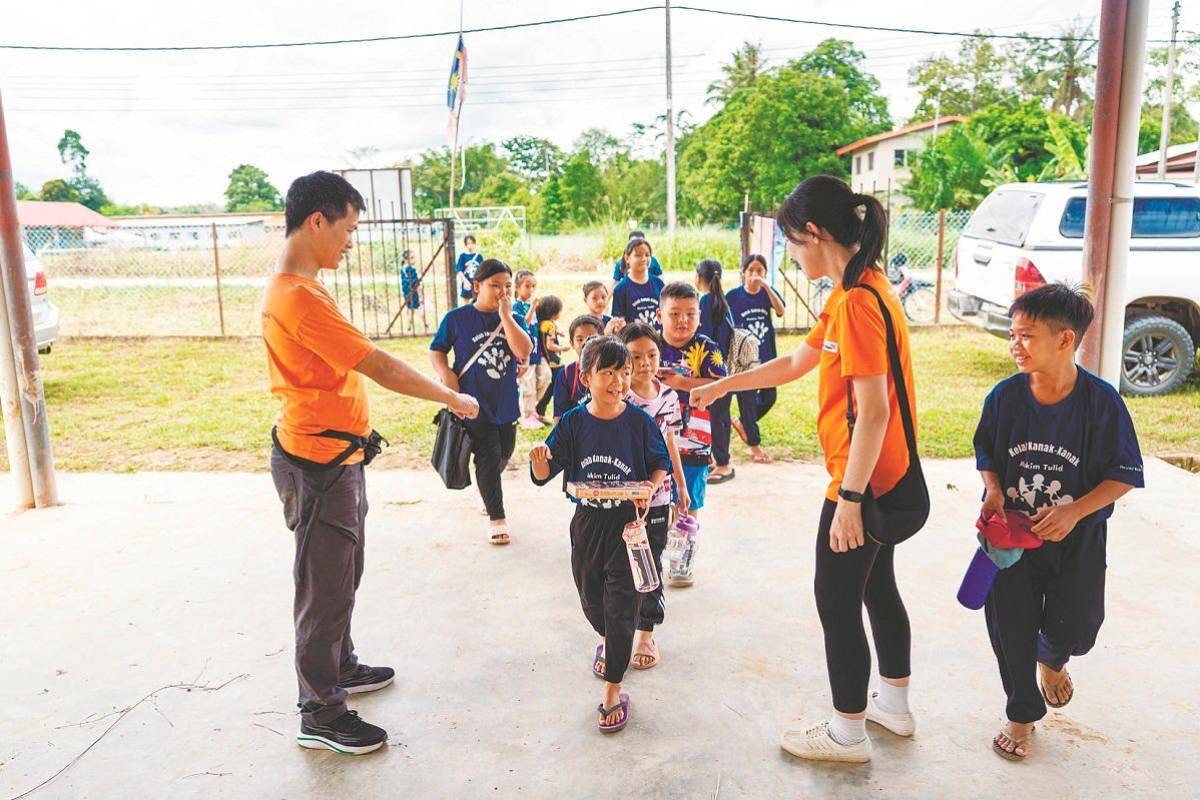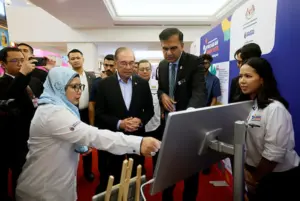IN a rural village in Sabah this June, I asked a group of children – ages nine to 12 – to write their names on a form.
What should have been a simple task revealed something heartbreaking. Some children hesitated, their hands trembling as they tried to spell.
Nine-year-old Maxuan paused over every letter before smiling proudly when he finished. A few others could not even recall or write
their birthdays.
That moment was more than a classroom exercise; it was a reminder that literacy, something many of us take for granted, remains out of reach for many children.
Progress at risk
Malaysia has made remarkable strides in education. In 2011, the country came close to universal adult literacy, reaching almost 99%. Yet, according to Unesco’s 2024 report, more than 1.2 million Malaysians aged 15 and above – 5.36% of adults – are still illiterate.
The challenge is especially pressing in Sabah, where about 11.2% of adults, roughly 274,000 people, cannot read or write. These numbers reflect not just statistics but thousands of lives and futures at stake.
Navigating digital era
This year’s International Literacy Day theme, ”Promoting Literacy in the New Digital Era”, is timely. Digital tools bring tremendous opportunities but without strong reading and writing foundations, many children risk being left behind.
The World Bank estimates that nearly one in four Malaysian children enter primary school without readiness skills, with low-income families most affected. In Sabah, children face extra hurdles – remote schools, under-equipped classrooms and limited internet access.
Even before the pandemic, progress in children’s literacy was slow. A World Vision Malaysia study (2019) found that literacy among children under 12 improved by just one percentage point over five years.
Wake-up call
Covid-19 highlighted how fragile access to learning can be. In urban areas, families juggled limited devices and crowded homes.
In rural Sabah, teachers relied on printed worksheets and children depended heavily on parents, many of whom struggled with literacy themselves.
One mother, Lucia, whose children take
part in World Vision Malaysia programmes, shared her hopes: ”Having Information and communication technology skills, getting excellent results and managing time wisely… these are my hopes for my children.”
Her words remind us that literacy today is not only about reading and writing; it is about the skills children need to thrive in school and in a digital world.
Building on what works
The Education Ministry has introduced important programmes such as Literacy and Numeracy Intervention Programme (2024), Anak Kita (2024) and the Reading Aid Programme (2022) to support foundational skills and reduce dropouts. These initiatives show what is possible when education is prioritised.
The next step is to scale up and strengthen what works, especially for rural and disadvantaged communities. This includes:
0 Upgrading rural infrastructure: better internet, devices and safe classrooms.
0 Expanding access to digital learning tools: literacy apps, e-libraries and interactive platforms.
0 Supporting teachers: through training, incentives and community-based recruitment.
0 Engaging families and communities: encouraging shared reading and building a culture of learning at home.
When schools, families, NGOs and policymakers work together, literacy becomes more than a subject; it becomes a foundation for national growth.
Literacy is dignity; it is empowerment and opportunity. Children like Maxuan deserve more than the ability to write their names; they deserve the chance to write their dreams.
Malaysia has shown before that it can
achieve near-universal literacy. With renewed commitment, we can do it again. But this time, we must ensure that no community and no child is left behind. Let us remember, the true measure of our progress is not only in statistics but in the futures we help children unlock.
The real question is not whether we can afford to invest in literacy; it is whether we can afford the cost of lost potential if we don’t.
Joseph Lai
Sabah Community Development Programme Lead
World Vision Malaysia






